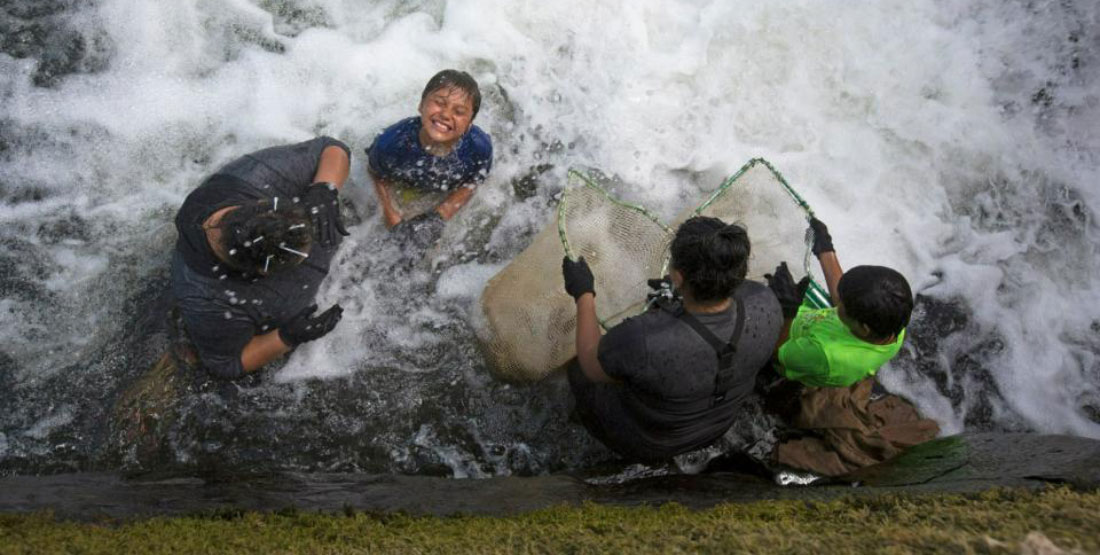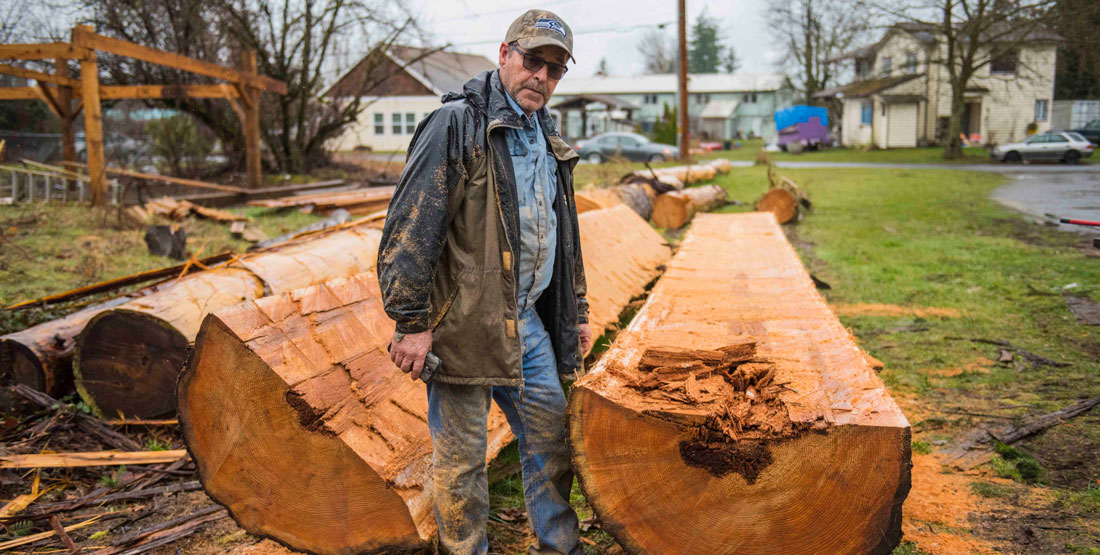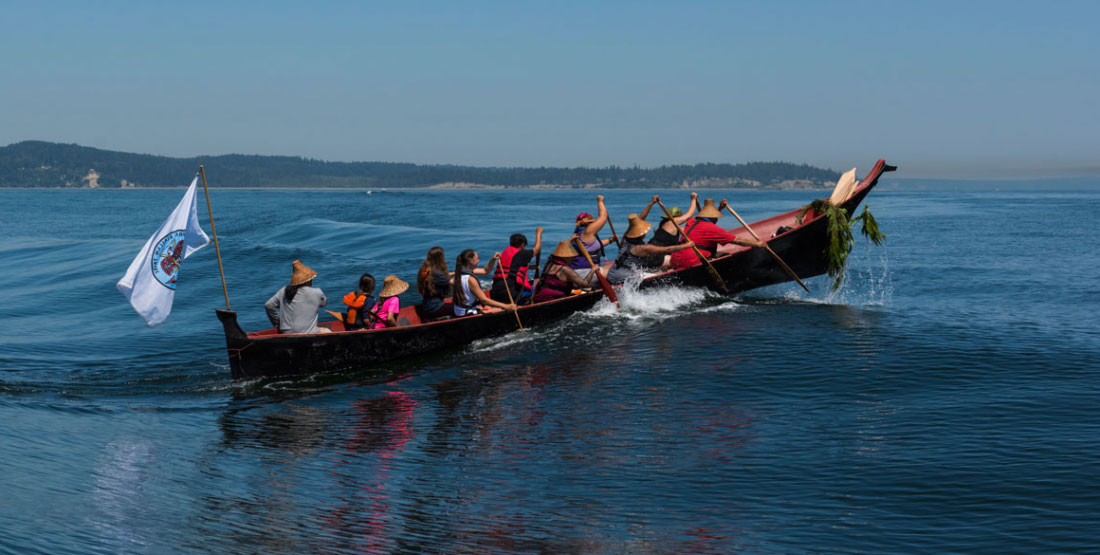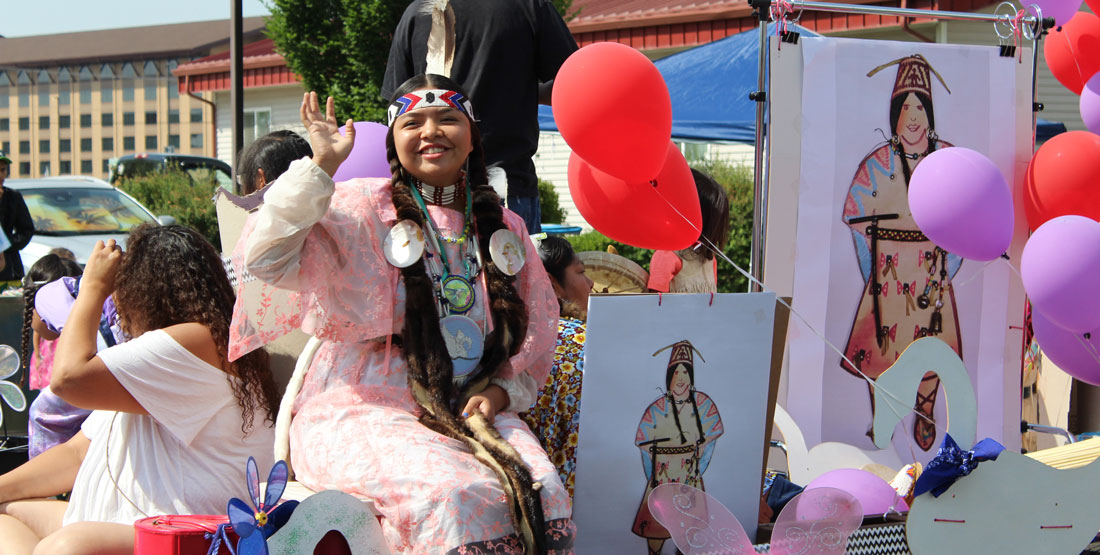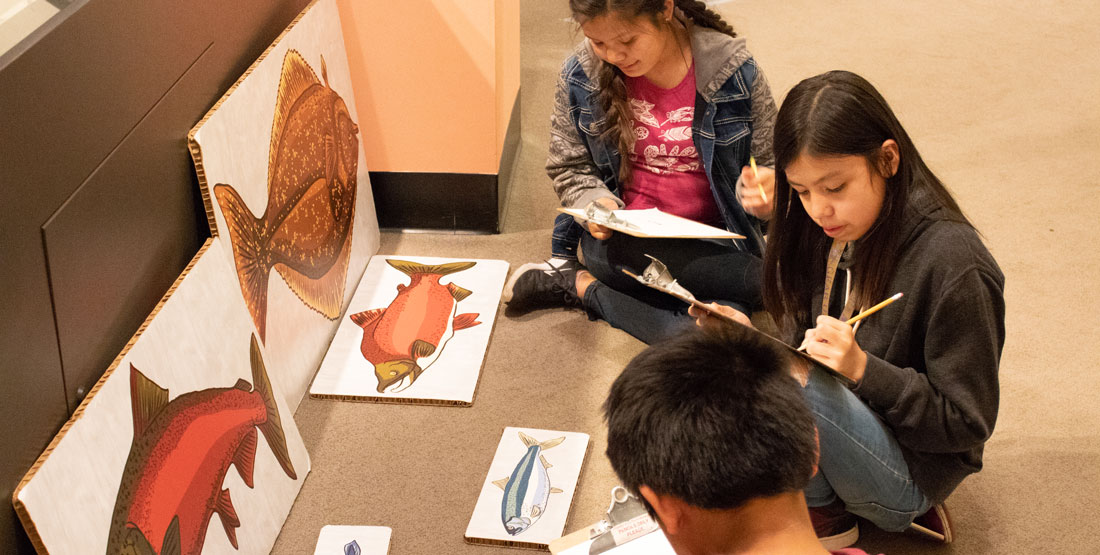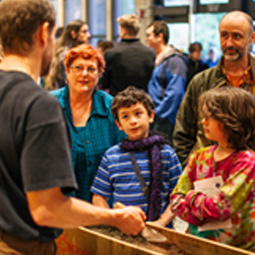Honor Indigenous Land and Knowledge
- The Burke begins every program, event, and meeting by acknowledging that we are on Indigenous land. Acknowledging the land and the people who have always called it home encourages students to think about the significance of place, and the continued existence of Indigenous people.
- Encourage students to learn about Native cultures straight from the source. Research local tribes and visit tribal museums, cultural centers, and events. Make sure students treat guests as teachers, not as entertainers.
- While there is archaeological evidence that shows humans have lived in North America for over 10,000 years, tribal oral histories also speak to this continuous existence. Oral histories are still passed down today and are records of environmental and social events from thousands of years ago!
- People have always practiced science. Help students understand that Native peoples have a deep respect for the environment and have, in fact, always maintained and cultivated nature. Engineering, ethnobotany, and marine sciences are great cross-disciplinary topics!
Terminology is Important
- Native American, Native, American Indian, Indian, First Peoples, and Indigenous are all terms used by both Native and non-Native people. When possible, most Native people prefer being identified by their specific community.
- Are students only referring to Native Americans in the past tense? Discuss Native Americans as contemporary people involved in current affairs and practicing living traditions.
- Terms like “us” and “them” distance students from the human experience, and assumes that none of their fellow students are Native American. Allow space for Native students to share their stories and experiences, but also keep in mind that not all Native children know about their heritage or may not feel comfortable sharing about it.
- Push students to think critically about words they encounter. Why are words like “un/civilized” and “savage” offensive? Even the word “prehistoric,” when discussing human history, can invalidate the millennia of oral history traditions in Indigenous communities. Encourage phrases like “pre-contact,” or “pre-European settlement.”
Recognize Diversity
- Do your students know that there are over 600 Native American tribes in the United States? While there are some geographical similarities, all of these tribes have their own unique cultures and traditions. Currently, 573 tribes are considered sovereign nations, meaning they signed ratified treaties and have unique government-to-government relationships with the United States.
- Encourage students to research the linguistic diversity of Native Americans. Avoid using materials that reference a generic “Indian language.”
"What I want people to know is that we don’t live in the past. We don’t live in teepees, we don’t go to school on horses, we don’t just eat our traditional foods all the time. I want to break all the stereotypes about us."
Kamarin Gleason, Yakama Nation, Toppenish Creek Longhouse
Think Critically about Perspective and Representation
- While Native Americans are contemporary peoples, many still practice traditions that have been passed down for generations. Discourage students from making up Native American legends, ceremonies, names, or dances. Instead, have them research first-hand accounts of these traditions.
- Do the books you read present Native perspectives? Are they written by Native authors? Do you incorporate oral histories and storytelling into your lessons? Challenge students to think about the way history changes depending on whose perspective is told.
- Dressing up or pretending to be Native American can reinforce stereotypes, and be detrimental to the intent of thinking critically about how a person or people in a specific situation may have felt or reacted.
- Students see representations of Native peoples everywhere—TV, movies, mascots, clothing designs, etc. Many representations are stereotypical and culturally insensitive. Challenge students to read these depictions critically and think about the importance of highlighting diverse and contemporary Native American peoples in popular culture.
Additional Resources
- Understanding Prejudice Teaching About Native Americans
- Scholastic Teaching Respect for Native Peoples
- Indian Country Today 10 Things Teachers Should Never Do When Teaching Native Kids
- Helpful Native American Heritage Month teaching resources (Burke Blog)
- Since Time Immemorial: Tribal Histories of Washington State
- Affiliated Tribes of Northwest Indians
- National Indian Education Association
- Honoring Tribal Legacies curriculum
- Columbia River Intertribal Fisheries Commission
- Northwest Indian Fisheries Commission
- 29 federally recognized tribes in Washington State
- Coast Salish art style and meaning (Burke Blog)
- Honor Native Land: A Guide and Call to Acknowledgement
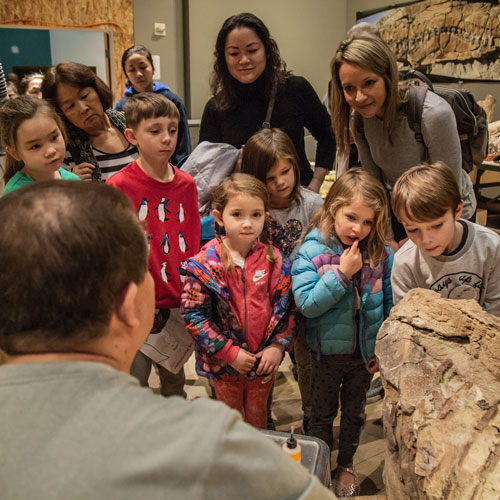
Educator News & Updates
Sign up for our Educator emails and be among the first to hear about new offerings, learning resources, events and more!
